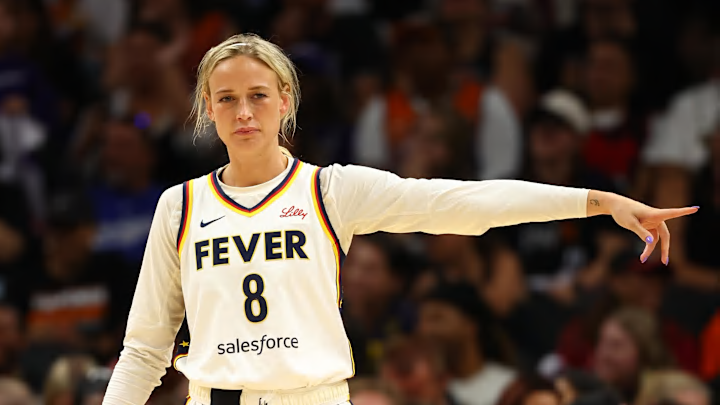In a post-game interview, Cunningham stood by her decision with unwavering conviction, declaring, “Even if it made me more famous or got me more sponsorships, I would never accept it. This is the stance of my career.” Her words echoed through social media, sparking massive debate about where the line should be drawn between personal beliefs and public responsibility in professional sports.
Supporters hailed Cunningham as brave for refusing to “bow to pressure” or “follow trends she doesn’t believe in,” arguing that every athlete should have the right to express — or withhold — their personal stance. Critics, however, called her actions divisive and disrespectful, claiming she had undermined the spirit of inclusivity that the WNBA has long championed.
League officials have yet to issue an official statement, but insiders report that Cunningham’s choice could lead to disciplinary discussions within the organization. Meanwhile, her name continues to trend across platforms, with fans, analysts, and public figures weighing in on what has quickly become one of the most polarizing moments in WNBA history.

Regardless of where the public stands, one thing is undeniable: Sophie Cunningham has reignited the national conversation about politics, identity, and freedom in sports — and her decision may shape how the WNBA handles player expression for years to come.
